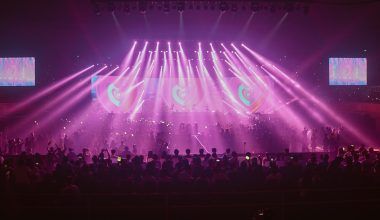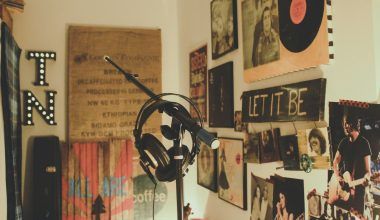When it comes to creating music, podcasts, or any type of audio content, one essential tool stands out: the list of digital audio workstations, commonly referred to as a DAW. These incredible software solutions allow anyone from hobbyists to professional producers to compose, record, edit, and mix their projects with ease. If you’ve ever wondered what makes audio magic possible, let’s dive into the fascinating world of digital audio workstations.
What is a Digital Audio Workstation (DAW)?
In simple terms, a DAW is software used to produce and edit audio. It’s the central hub for modern music production. Whether you’re layering vocals, tweaking beats, or fine-tuning a podcast episode, a DAW provides the tools you need. And the best part? There’s a DAW for every skill level, budget, and style of production.
Why Use a Digital Audio Workstation?
Using a DAW simplifies the creative process. Gone are the days when music production required a studio filled with expensive hardware. Today, all you need is a computer, a DAW, and your creativity. With features like MIDI editing, audio effects, and virtual instruments, DAWs open up endless possibilities for creativity.
Moreover, these tools are designed to be intuitive, offering drag-and-drop functionalities, customizable workflows, and real-time collaboration. Whether you’re a beginner exploring sound design or an expert mastering an album, DAWs cater to your needs.
Popular Digital Audio Workstations to Explore
Ableton Live
Ableton Live is a powerhouse for electronic music producers. Its seamless workflow and intuitive interface make it a top choice for live performances and studio work. With features like session view, MIDI mapping, and built-in instruments, Ableton Live empowers creativity like no other. It’s perfect for those who love improvisation and experimenting with loops.
Logic Pro
Apple’s Logic Pro is a favorite among macOS users. It’s packed with professional-grade features, yet it’s user-friendly enough for beginners. Logic Pro includes a library of virtual instruments, sound effects, and loops to get you started. If you’re looking for a DAW that balances power with simplicity, this might be the one.
FL Studio
FL Studio, formerly known as FruityLoops, is popular among producers of hip-hop and EDM. Its pattern-based interface is unique, making beat-making a breeze. FL Studio also boasts a vast array of plugins and tools for sound design, mixing, and mastering.
Pro Tools
Pro Tools is often referred to as the industry standard for audio production. It’s widely used in professional recording studios for its advanced editing and mixing capabilities. While it may have a steeper learning curve, Pro Tools’ precision and reliability make it a go-to for serious audio engineers.
Cubase
Cubase is another excellent option for professionals and hobbyists alike. Known for its versatility, Cubase offers robust MIDI editing, audio processing, and an intuitive user interface. It’s a great choice for composing, recording, and mixing.
Reaper
Reaper is loved for its affordability and customization options. Despite its low price, it doesn’t skimp on features. It’s highly efficient, lightweight, and compatible with a range of plugins. Reaper’s flexibility makes it a favorite among indie producers.
GarageBand
GarageBand is the perfect entry point for beginners. Pre-installed on macOS, this free DAW provides an easy way to start creating music. With a simple interface and a good selection of loops and instruments, GarageBand makes music production accessible to everyone.
Choosing the Right DAW for Your Needs
With so many digital audio workstations available, choosing the right one can feel overwhelming. Here’s a simple guide to help:
- Skill Level: Beginners might prefer user-friendly DAWs like GarageBand or Logic Pro, while experienced producers might gravitate towards Pro Tools or Cubase.
- Budget: Free options like GarageBand or budget-friendly ones like Reaper are excellent for those just starting. Premium DAWs like Ableton Live or Logic Pro are great investments for serious producers.
- Music Genre: Different DAWs cater to specific genres. For example, FL Studio excels in electronic and hip-hop, whereas Pro Tools is ideal for recording live instruments.
- Operating System: Not all DAWs are cross-platform. Check compatibility with your OS before making a decision.
How to Get Started with a DAW
Starting your journey with a digital audio workstation is easier than ever. Here are some tips to help you begin:
- Choose Your DAW: Download a trial version if available. This helps you explore its features before committing.
- Set Up Your Workspace: A quiet space, good headphones, and a decent computer are essential. Add a MIDI controller or audio interface for more advanced setups.
- Learn the Basics: Explore tutorials and guides online. Many DAWs come with built-in help or community forums to assist you.
- Start Small: Experiment with loops, record your voice, or play with virtual instruments to understand the workflow.
- Practice Regularly: The more you use your DAW, the more confident you’ll become. Don’t be afraid to make mistakes—it’s part of the learning process.
Advanced Tips for Maximizing Your DAW
Once you’re comfortable with the basics, it’s time to take your skills to the next level:
- Explore Plugins: Expand your DAW’s capabilities with third-party plugins. From virtual instruments to mixing tools, plugins add endless possibilities.
- Master Shortcuts: Learning keyboard shortcuts can significantly speed up your workflow.
- Experiment with Sound Design: Play with effects like reverb, delay, and compression to shape your unique sound.
- Collaborate with Others: Many DAWs support online collaboration. Working with other producers can be inspiring and educational.
- Stay Updated: DAWs frequently release updates with new features and improvements. Keeping your software up-to-date ensures you’re always ahead.
The Future of Digital Audio Workstations
list of digital audio workstations continue to evolve, making music production more accessible and innovative. From AI-powered tools to cloud-based collaboration, the future of DAWs is exciting. Whether you’re a casual creator or an industry professional, there’s never been a better time to explore these powerful tools.
Conclusion
list of digital audio workstations have revolutionized the way we create and edit audio. With options for every skill level and budget, there’s a DAW out there for everyone. Start your journey today, and you might just discover your hidden talent for producing incredible audio content.
Related Articles:
For further reading, explore these related articles:
- The Ultimate Guide to Music Awards: Celebrating Talent and Dreams
- Tom Odell: The Journey of a Music Genius
For additional resources on music marketing and distribution, visit DMT RECORDS PRIVATE LIMITED






